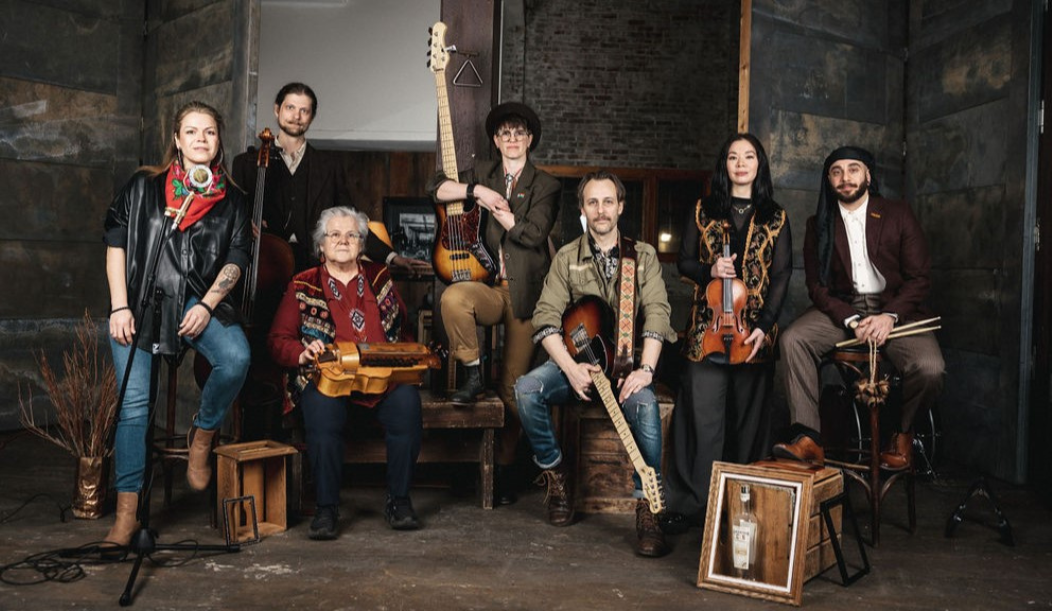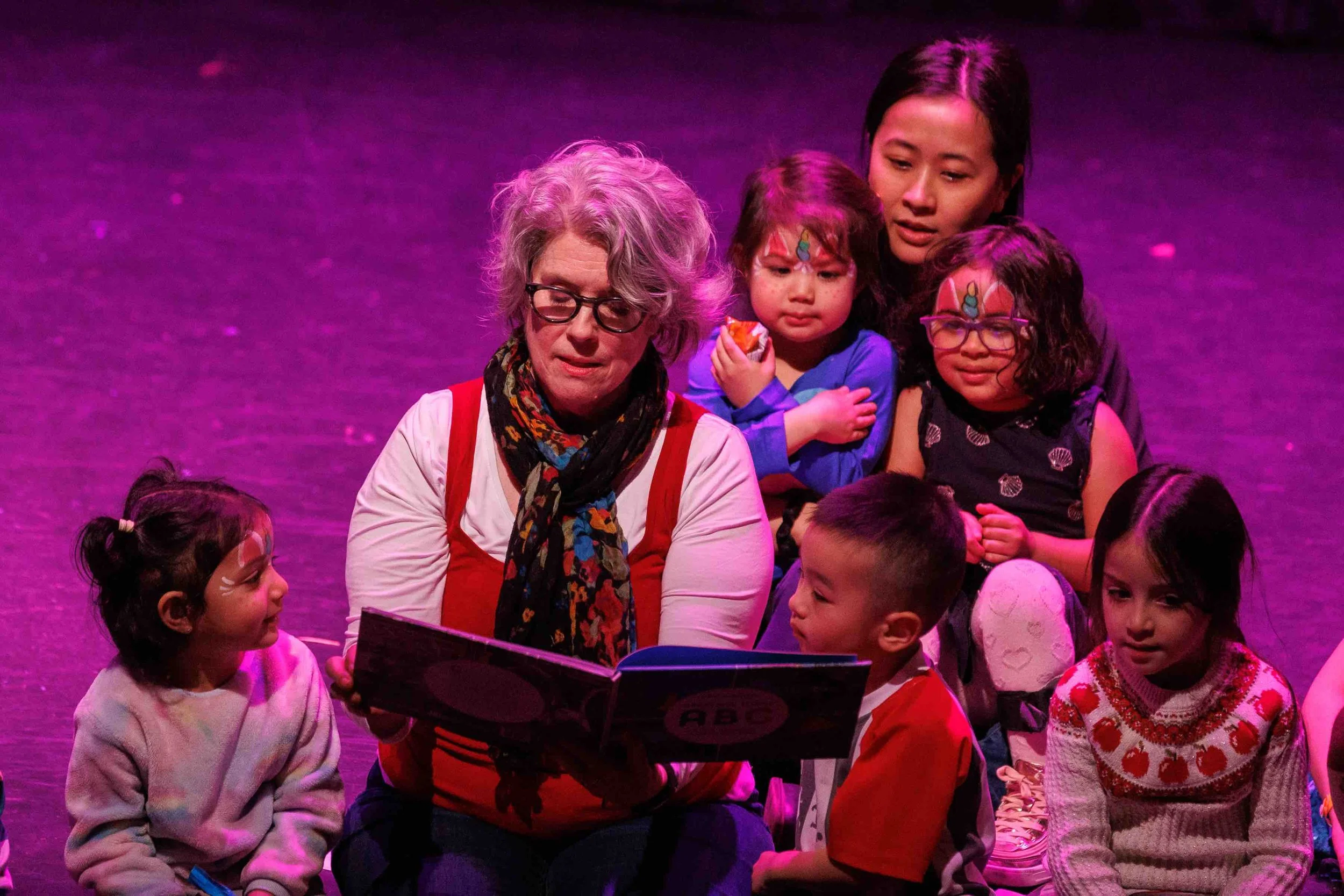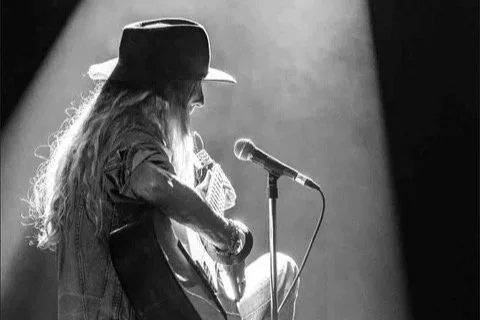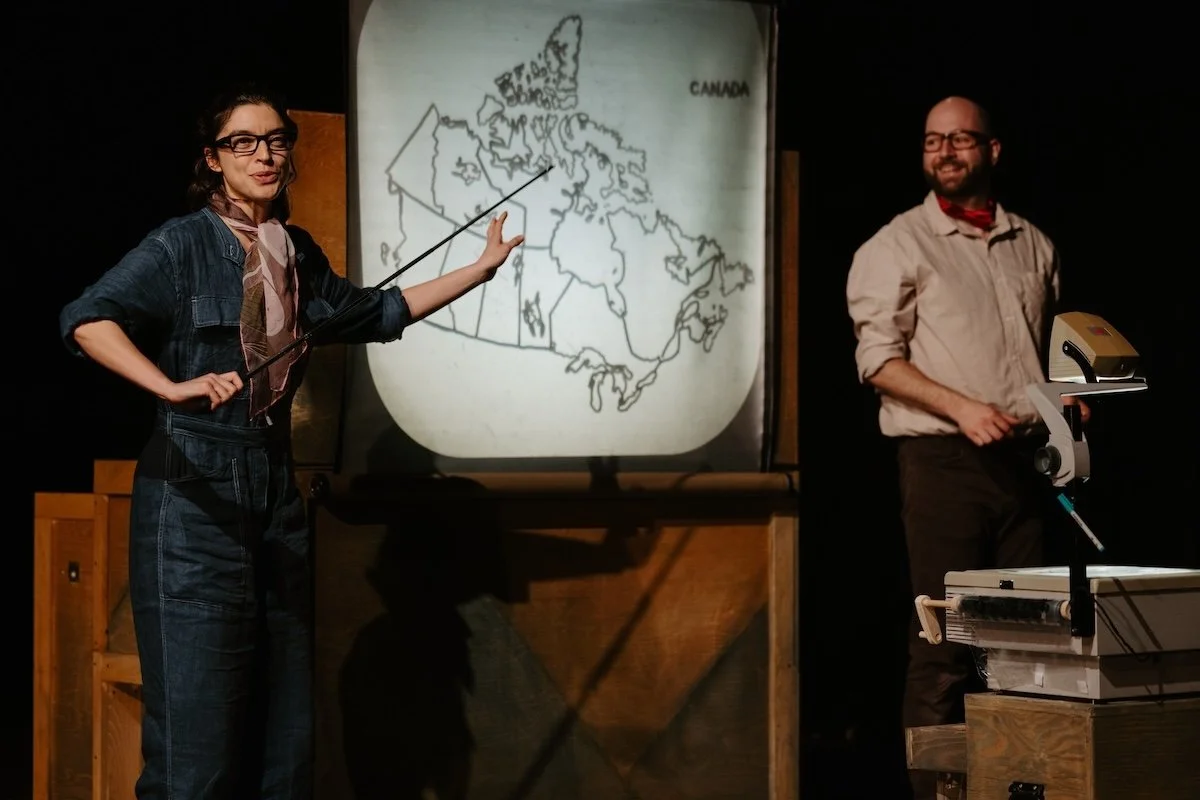Mononk Jules tells the story of a forgotten Indigenous hero
Montreal playwright Jocelyn Sioui shares his great uncle’s remarkable history in the documentary-theatre piece with video, puppets, and more
Mononk Jules. Photo by Marie Julie Garneau
Théâtre La Seizième presents Mononk Jules from February 22 to 25 in French with English surtitles nightly except on February 24
MONTREAL-BASED PLAYWRIGHT, actor, and puppeteer Jocelyn Sioui never knew his great uncle, having first come across the man’s existence in La Femme qui fuit (The Fleeing Woman), a historical-fiction novel by Anaïs Barbeau-Lavalette. Jules Sioui, it turns out, was a 20th-century Indigenous hero.
A member of the Huron-Wendat Nation from Wendake, near Quebec City, Jules Sioui set his sights squarely on Indigenous sovereignty around 1940, when the federal government drafted men in good health to go to war; this included Indigenous people, who were not even considered “Canadians” and did not have the right to vote. Fiercely opposed to the draft and the greater oppression it represented, Jules Sioui created a committee to protect Indigenous rights and establish self-governance—the group being a precursor to today’s Assembly of First Nations. In 1943, he invited Canada’s First Nations chiefs to meet with federal officials in Ottawa to discuss their rights and, two years later, founded the North American Indian Nation Government in collaboration with delegates from all across the country.
Despite playing a pivotal role in the country’s history and the very survival of Indigenous culture, few people know about Jules Sioui. It certainly struck Jocelyn Sioui that this remarkable individual’s legacy should be relegated merely to two pages in a novel.
“I remember reading that book and I just said to myself ‘What is left of this story?’” Sioui tells Stir in an interview in French via Zoom. “Right there, I thought ‘We have to tell the story. We have to tell what hasn’t been told—the story of the Indian Act and all of the ramifications and then also the resistance. Because this was a story of resistance that was never told.
“It shows me that Native people have never given up,” he adds. “They always showed up and spoke up, but people stopped listening to them. People didn’t want to hear them; the government didn’t want to hear them. They were considered troublemakers, yes, but they were people who didn’t want to assimilate. It’s normal: nobody wants to assimilate. And we in Quebec should be the first to understand that.”
Sioui happened to discover his great uncle’s story around 2016, during a period when he was questioning where he wanted to go with his artistic practice. A founding member of the theatre company Belzébrute, he had launched OUF! Festival Off Casteliers, which has grown into the largest gathering of puppeteers in Canada. He found himself wanting to incorporate more storytelling into his work. Around the same time, he was yearning to gain a deeper understanding of his ancestral roots and his mixed Québécois-Indigenous heritage.
Inspired and intrigued by his relative’s life, Sioui took a deep dive into learning more about the man and the role his great uncle played in boldly standing up for Indigenous rights and freedoms. His research led to the creation of Mononk Jules, Sioui’s first solo work, which is soon having its Vancouver premiere via Théâtre La Seizième.
The documentary-theatre piece brings the forgotten—or rather, erased—story of his great uncle to light, raising questions about identity, memory, legacy, and the selective writing of history. Sioui punctuates the storytelling with the use of puppets, audio clips, videos, live sound effects, and archival documents and photos that he pulls out of so many file boxes resting on the stage floor.
Theatre, Sioui says, can bring the past into the present in approachable ways. And in this case, it serves to revive one of countless stories that never made it into history books or were never taught in public school.
The Indian Department considered the elder Sioui an “agitator”, and eventually, his push for self-government led to his arrest. He and four others from the North American Indian Nation Government were found guilty of seditious conspiracy, a judgment that was overturned on appeal. The federal government brought the case before the Supreme Court, when Jules Sioui embarked on a hunger strike lasting 72 days. Finally, the government abandoned its proceedings.
“All of my shows have been mainstream, and one of the reasons for this is because I always try to make the topic accessible,” he says. “I find accessibility is often missing for people, especially when it comes to history. With theatre, they don’t necessarily have to open books or do Internet research on something. And even then, people aren’t always telling the real story.
“In theatre, we tell the story to look at all the sides, all the realities, to understand the issues,” he says.
Depending on where Mononk Jules is playing, Sioui makes adaptations to the script, tailored to different audiences. For its Vancouver run, he will be referencing late Squamish Nation member Andrew Paul. The activist, who trained as a lawyer, fought for Indigenous rights, title, education, and more, forming the North American Indigenous Brotherhood in 1945.
“He inspired a lot of people in British Columbia,” Sioui says, adding that it appears that Paul and his great uncle worked together. “I know that a lot of people have forgotten about Andrew Paul. I’m trying to set the record straight and explain a little bit who he was. I have to do more research, but I wrote a text to honour his memory and to inform people. He was a great leader. I think people are looking for this kind of story.”













